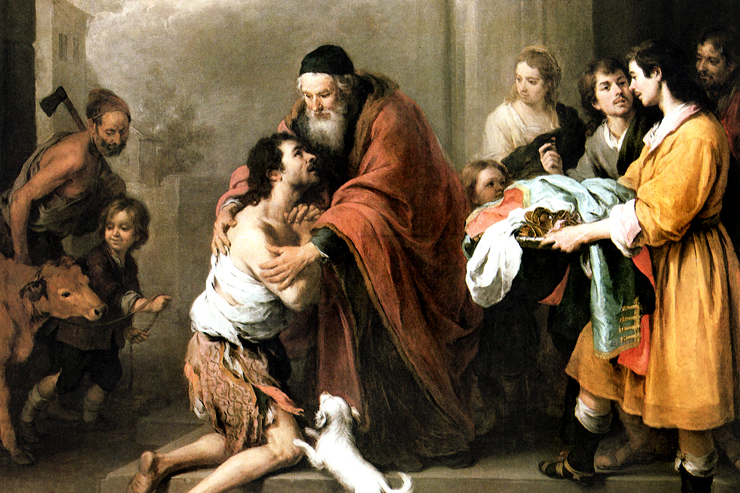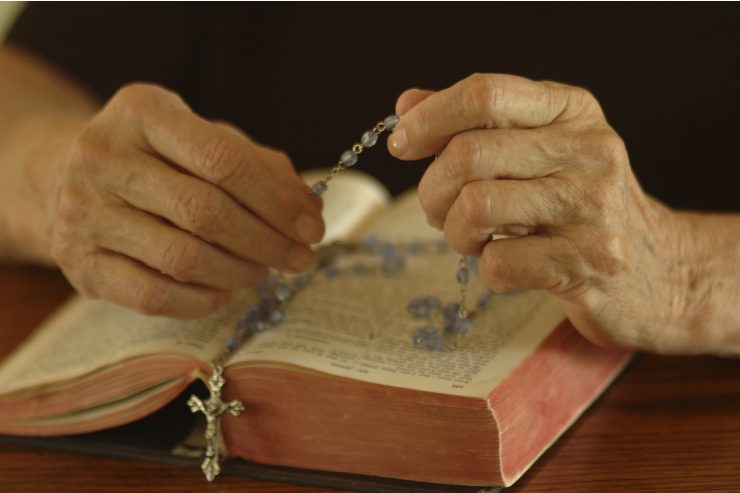As we prepare for Pope Francis’ visit to the United States, we should also be preparing for the usual spin on his message. One of the messages of Pope Francis that is often skewed is his call for mercy and compassion. Mercy has definitely been a theme of Francis’ pontificate, as he repeatedly comes back to it in homilies and addresses, and has now called for the Jubilee Year of Mercy to be celebrated next year. It’s one of the reasons the culture today loves him. But sadly, many people love Pope Francis for what they think he’s saying, and it’s not always what he actually said. Perhaps it’s because they only listen to part of what he’s said, or they’ve only heard his message from a third party, or they’ve misunderstood him completely. But to many modern ears, the Pope’s call for mercy seems to be a carte blanche to do what the Church once condemned.
The modern interpretation of mercy seems to be letting our loved ones and ourselves get away with things we used to call sin, as long as we aren’t hurting anyone. This may carry over for public figures as well, as long as we like them. When Pope Francis calls for mercy, he must mean that we can stop talking about sin. If whatever I’m doing makes me feel good, it can’t be wrong, and mercy requires you stop bothering me about it.
If that sounds ridiculous to you, you haven’t been reading what some people think about Pope Francis’ appeal to mercy. Does compassion mean that weekly Mass attendance is not obligatory, that same-sex couples have a right to marry, that contraception is permissible, that divorce is okay, or that these and other “hard truths” can now be ignored for the sake of charity?
A recent survey found that nearly four in ten Catholics believe Pope Francis thinks same-sex couples have the right to marry. There seems to be a widespread belief that when he speaks about mercy and forgiveness, he is dismissing moral absolutes. Yet if anyone is going to talk about forgiveness, doesn’t it mean that there is sin? If there’s no sin, why would we need mercy?
In one of his first homilies as Pope, Francis had some strong words for us. He said, “I think we [are] people who, on the one hand, want to listen to Jesus, but on the other hand, at times, like to find a stick to beat others with, to condemn others. And Jesus has this message for us: mercy. I think—and I say it with humility—that this is the Lord’s most powerful message: mercy.” (Homily on March 17, 2013)
What exactly is mercy? I think some people perhaps read quotes like this one and are misunderstanding Pope Francis’ focus on mercy. It is not that he is saying we don’t judge certain actions as sinful, or that we say sin is okay. His repeated call for mercy is not because he’s choosing to ignore sin, “relax the rules,” or look the other way. In that same homily, speaking about the woman caught in adultery, he said, “Jesus’ attitude is striking: we do not hear the words of scorn, we do not hear words of condemnation, but only words of love, of mercy…”
If we stopped reading the homily there, I think we could go away with a skewed view of mercy. But if we really look at what he’s saying, making sure we don’t take his words out of context, we see a deeper message. Let’s continue to listen to that quote. “We do not hear words of condemnation, but only words of love, of mercy, which are an invitation to conversion. ‘Neither do I condemn you; go, and do not sin again.’ Ah! Brothers and Sisters, God’s face is the face of a merciful father who is always patient.”
Always patient, yes—but notice what is included in this call for mercy—an invitation to conversion, an invitation to change. Jesus’ command in the Gospel to “repent and sin no more,” directly contradicts the idea that mercy condones (or at least ignores) sinful behavior.
So when we talk about mercy and compassion, what are we talking about?
When we look at the parable of the Prodigal Son, perhaps one of the most vivid examples of mercy and compassion, notice what the loving father doesn’t do. The son is sitting in the pig pen, starving. Is mercy giving him food in the pig pen, because “aw, poor guy, he’s starving! Have some compassion!”?
No. Mercy is allowing him to realize there is an answer to his suffering… conversion.
The father—we could call him the prodigal father, because his love and forgiveness is as ostentatious as the sins of the son—shows the son mercy not by allowing him to stay in the pig pen, but by accepting him as his son again.
We do no one any favor when we ignore sin or pretend it is okay. This is not mercy.
Mercy is welcoming him home. And what does that mean? Being loving when he does want to come home and ultimately helping him live a different life than before. That is what we need to do better as a Church. Too often we don’t like to open the doors of the Church for messes, only for saints. Open the door for messes! But don’t ignore their mess—help them work through the mess.
That’s what the Pope is asking for us. Welcome home the sinners- and love them enough to help them shed the sins.
There’s the classic saying, “Hate the sin, love the sinner.” This is mercy. I am not defined by my sin, so my sin can be hated while I am loved. The Church can hate my sin while simultaneously loving me. For me to receive mercy, I have to hate my sin. It doesn’t mean I never do it (Romans 7:15). It means I avoid situations of temptation, I pray for strength, I receive the Sacrament of Confession, and I honestly try to amend my life. Even if I’m too broken to actually hate my sin, I can at least hate the effects of my sin (see the Prodigal Son’s conversion, for example), and my merciful Father accepts this as contrition, as imperfect as it might be.
Pope Francis’ call for mercy is a reminder desperately needed in our broken world today. Sadly, it will be misinterpreted by many, and a misuse of words ruins the words. Not unlike the way the phrase “liturgical reform” was ruined in the 70s, when we paint an erroneous picture of “compassion,” we then destroy any attempt at true compassion. I do believe we need to be compassionate towards humanity’s brokenness, and I don’t think the people of the Church have been the best at that in the past. I do believe we need an emphasis on mercy and pastoral care. But condoning or ignoring the sins is not the answer, because it does not actually help people in their brokenness.
If we were really to listen to Pope Francis’ call for mercy, we would find that it is always connected to repentance, conversion, and sanctification. True mercy does not allow us to remain where we are: true mercy forgives and then calls us higher.
“The Church, that is holy, does not reject sinners; she does not reject us all; she does not reject because she calls everyone, welcomes them, is open even to those furthest from her, she calls everyone to allow themselves to be enfolded by the mercy, the tenderness and the forgiveness of the Father, who offers everyone the possibility of meeting him, of journeying toward sanctity. ‘Well! Father, I am a sinner, I have tremendous sins, how can I possibly feel part of the Church?’ Dear brother, dear sister, this is exactly what the Lord wants, that you say to him: ‘Lord, here I am, with my sins.’ Is one of you here without sin? Anyone? No one, not one of us. We all carry our sins with us. But the Lord wants to hear us say to him: ‘Forgive me, help me to walk, change my heart!’ And the Lord can change your heart.” (General Audience on October 2, 2013).














